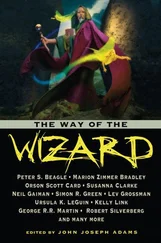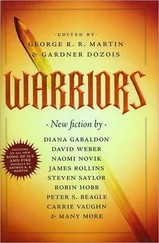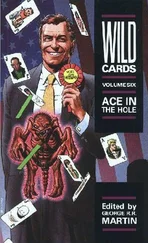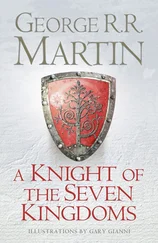I bought nothing from him.
The next time I was there Charity Parrot had, in her turn, moved on, her place taken by an Indian family who sold hookahs and smoking paraphernalia, but the little man in the dark glasses was still in his corner at the back of the flea market, with his grey cloth. On it were more carvings of creatures.
“I do not recognise any of these animals,” I told him.
“No.”
“Do you make them yourself?”
He shook his head. You cannot ask anyone in a flea market where they get their stuff from. There are few things that are taboo in a flea market, but that is: sources are inviolate.
“Do you sell a lot?”
“Enough to feed myself,” he said. “Keep a roof over my head.” Then, “They are worth more than I ask for them.”
I picked up something that reminded me a little of what a deer might look like if deer were carnivorous, and said, “What is this?”
He glanced down. “I think it is a primitive thawn. It’s hard to tell.” And then, “It was my father’s.”
There was a chiming noise, then, to signal that soon enough the flea market would close.
“Would you like food?” I asked.
He looked at me, warily.
“My treat,” I said. “No obligations. There’s a Denny’s over the road. Or there’s the bar.”
He thought for a moment. “Denny’s will be fine,” he said. “I will meet you over there.”
I waited at Denny’s. After half an hour I no longer expected him to come, but he surprised me, and he arrived fifty minutes after I got there, carrying a brown leather bag tied to his wrist with a long piece of twine. I imagined it had to contain money, for it hung as if empty, and could not have held his stock. Soon enough he was eating his way through a plate piled with pancakes, and, over coffee, he began to talk.

The sun began to go out a little after midday. A flicker, first, and then a rapid darkening that began on one side of the sun and then crept across its crimson face until the sun went black, like a coal knocked from a fire, and night returned to the world.
Balthasar the Tardy hurried down from the hill, leaving his nets in the trees, uninspected and unemptied. He uttered no words, conserving his breath, moving as fast as befitted his remarkable bulk, until he reached the bottom of the hill and the front door of his one-room cottage.
“Oaf! It is time!” he called. Then he knelt and lit a fish-oil lamp, which sputtered and stank and burned with a fitful orange flame.
The door of the cottage opened and Balthasar’s son emerged. The son was a little taller than his father, and much thinner, and was beardless. The youth had been named after his grandfather, and while his grandfather had lived the boy had been known as Farfal the Younger; now he was referred to, even to his face, as Farfal the Unfortunate. If he brought home a laying-fowl it would cease to give eggs, if he took an axe to a tree it would fall in a place that would cause the greatest inconvenience and the least possible good; if he found a trove of ancient treasure, half-buried in a locked box at the edge of a field, the key to the box would break off as he turned it, leaving only a faint echo of song on the air, as if of a distant choir, and the box would dissolve to sand. Young women upon whom he fastened his affections would fall in love with other men, or be transformed into grues or carried off by deodands. It was the way of things.
“Sun’s gone out,” said Balthasar the Tardy to his son.
Farfal said, “So this is it, then. This is the end.”
It was chillier, now the sun had gone out.
Balthasar said only, “It soon will be. We have only a handful of minutes left. It is well that I have made provision for this day.” He held the fish-oil lamp up high, and walked back into the cottage.
Farfal followed his father into the tiny dwelling, which consisted of one large room and, at the far end of the dwelling, a locked door. It was to this door that Balthasar walked. He put down the lamp in front of it, took a key from around his neck and unlocked the door.
Farfal’s mouth fell open.
He said only, “The colours”. Then, “I dare not go through.”
“Idiot boy,” said his father. “Go through, and tread carefully as you do.” And then, when Farfal made no move to walk, his father pushed him through the door, and closed it behind them.
Farfal stood there, blinking at the unaccustomed light.
“As you apprehend,” said his father, resting his hands on his capacious stomach and surveying the room they found themselves in, “this room does not exist temporally in the world you know. It exists, instead, over a million years before our time, in the days of the last Remoran Empire, a period marked by the excellence of its lute music, its fine cuisine, and also the beauty and compliance of its slave class.”
Farfal rubbed his eyes, and then looked at the wooden casement standing in the middle of the room, a casement through which they had just walked, as if it were a door. “I begin to perceive,” he said, “Why it is that you were so often unavailable. For it seems to me that I have seen you walk through that door into this room many times and never wondered about it, merely resigned myself to the time that would pass until you returned.”
Balthasar the Tardy began then to remove his clothes of dark sacking until he was naked, a fat man with a long white beard and cropped white hair, and then to cover himself with brightly-coloured silken robes.
“The sun!” exclaimed Farfal, peering out of the room’s small window. “Look at it! It is the orange-red of a fresh-stirred fire! Feel the heat it gives!” And then he said, “Father. Why has it never occurred to me to ask you why you spent so much time in the second room of our one-room cottage? Nor to remark upon the existence of such a room, even to myself?”
Balthasar twisted the last of the fastenings, covering his capacious stomach with a silken covering that crawled with embroideries of elegant monsters. “That might,” he admitted, “have been due in part to Empusa’s Invocation of Incuriosity.” He produced a small black box from around his neck, barely large enough to hold a beetle. “This, when properly primed and invoked, keeps us from being remarked upon. Just as you were not able to wonder at my comings and goings, so neither do the folk in this time and place marvel at me, nor at anything I do that is in any wise contrary to the mores and customs of the Eighteenth and Last Greater Ramoran Empire.”
“Astonishing,” said Farfal.
“It matters not that the Sun has gone out, that in a matter of hours, or at most weeks, all life on Earth will be dead, for here and at this time I am Balthasar the Canny, merchant to the sky-ships, dealer in antiquities, magical objects and marvels — and here you, my son, will stay. You will be, to all who wonder about your provenance, simply and purely my servant.”
“Your servant?” said Farfal the Unfortunate. “Why can I not be your son?”
“For various reasons,” stated his father, “too trivial and minor even to warrant discussion at this this time.” He hung the black box from a nail in the corner of the room. Farfal thought he saw a leg or head, as if of some beetle-like creature, waving from inside the little box, but he did not pause to inspect it. “Also because I have a number of sons in this time, that I have fathered upon my concubines, and they might not be pleased to learn of another. Although, given the disparity in the dates of your birth, it would be over a million years before you could inherit any wealth.”
“There is wealth?” asked Farfal, looking at the room he was in with fresh eyes. He had spent his life in a one-roomed cottage at the end of time, at the bottom of a small hill, surviving on the food his father could net in the air — usually only seabirds or flying lizards, although on occasion other things had been caught in them: creatures who claimed to be angels, or great self-important cockroach-like creatures with high metal crowns, or huge bronze-coloured jellies. They would be taken from the netting, and then either thrown back into the air, or eaten, or traded with the few folk that passed that way.
Читать дальше












